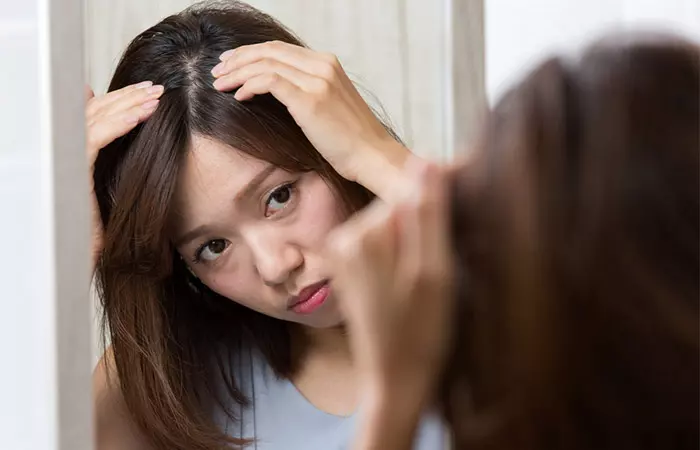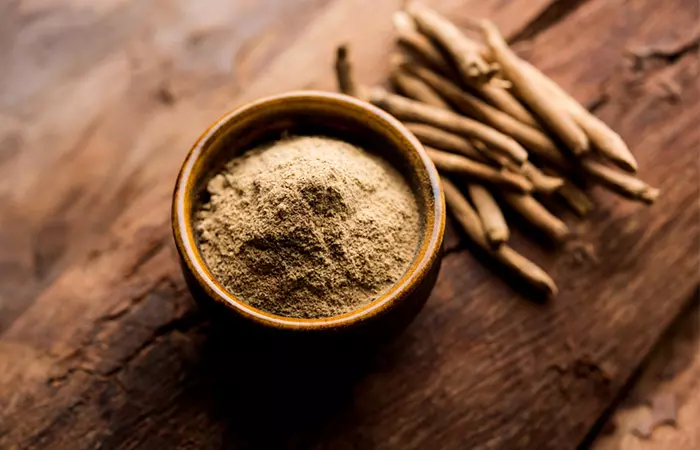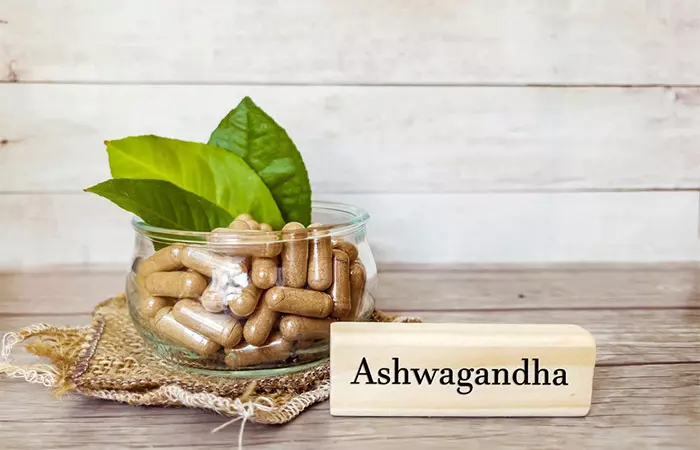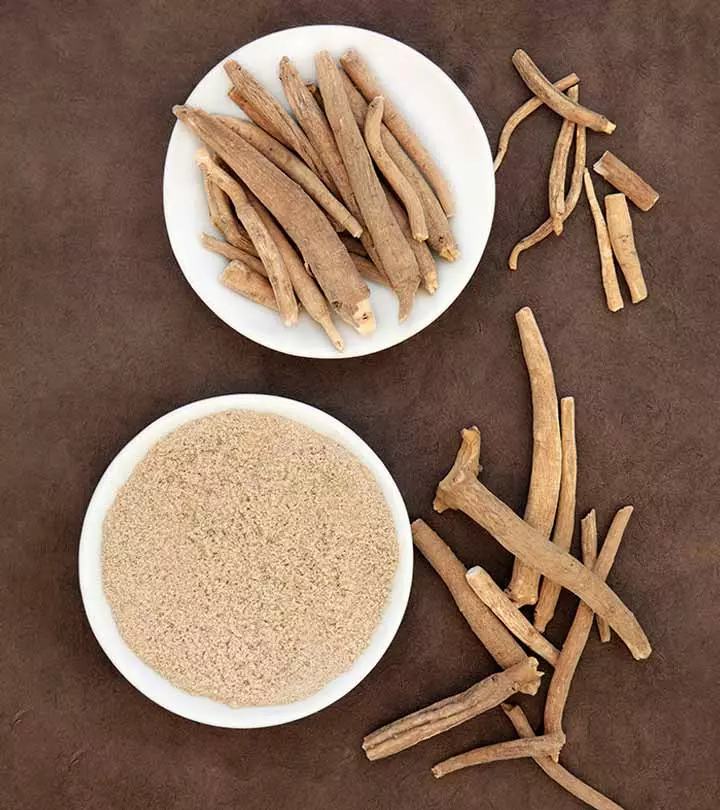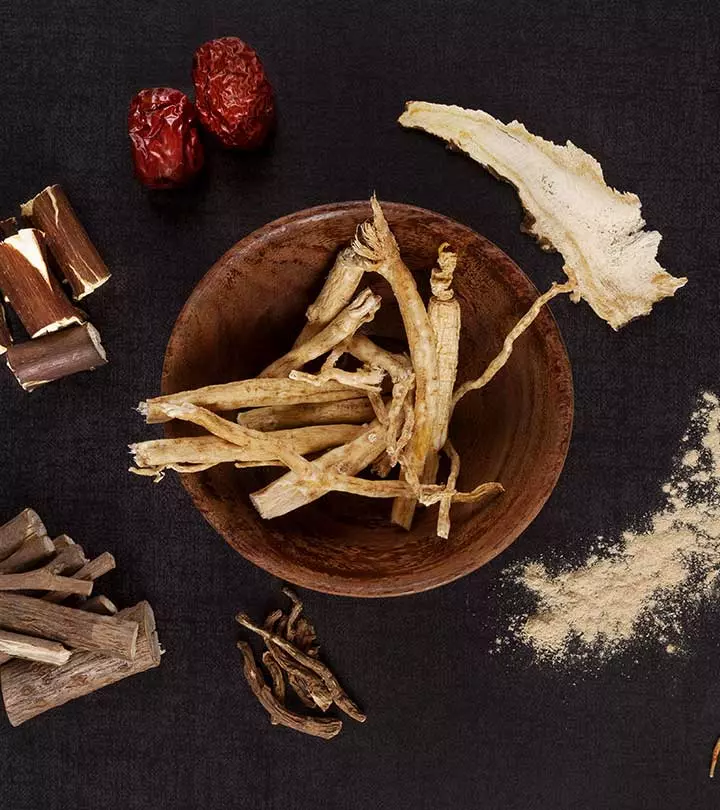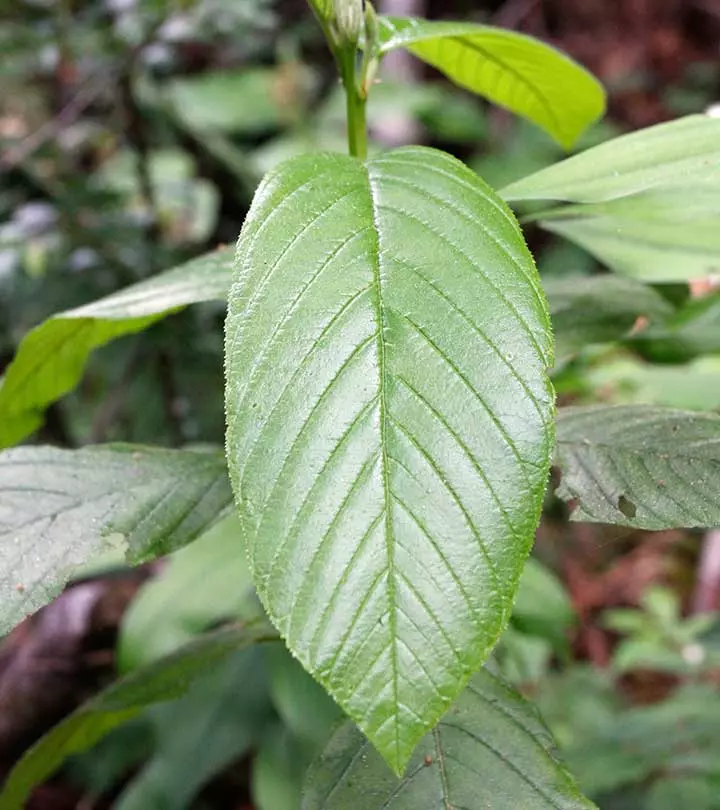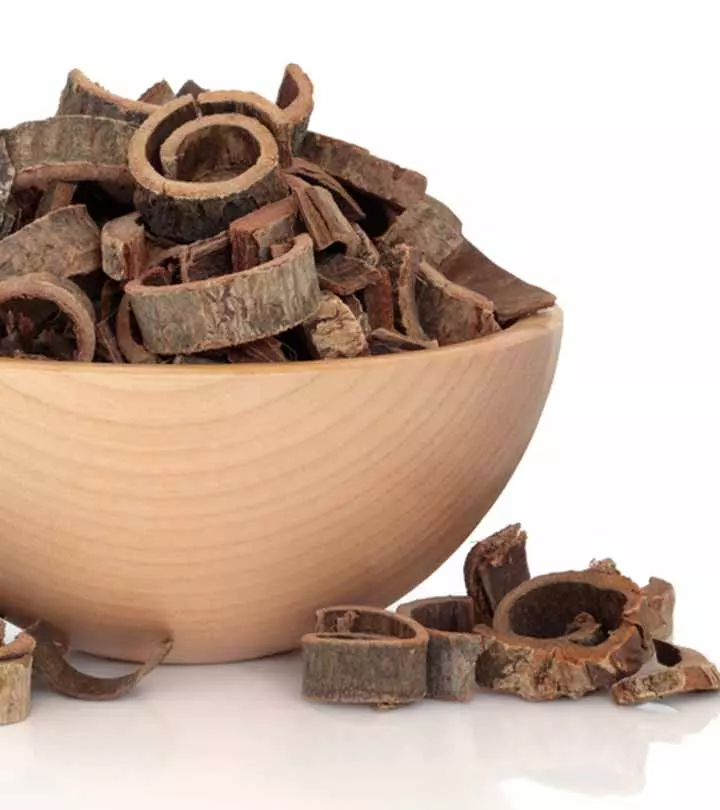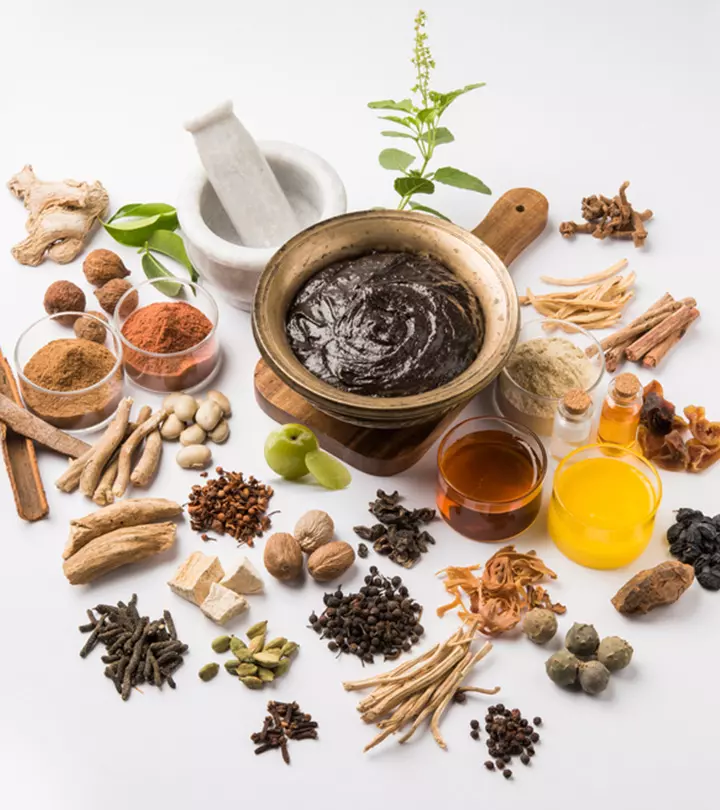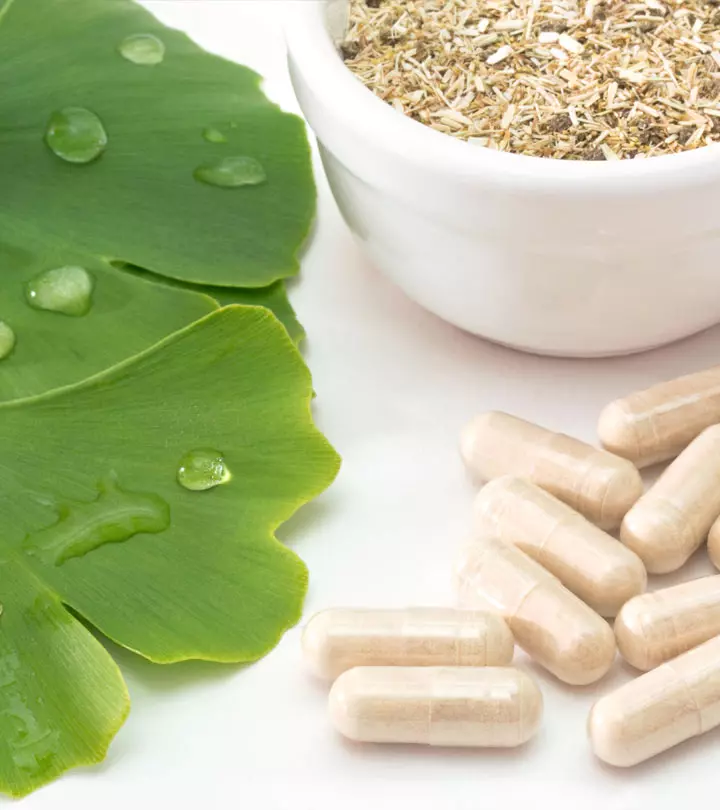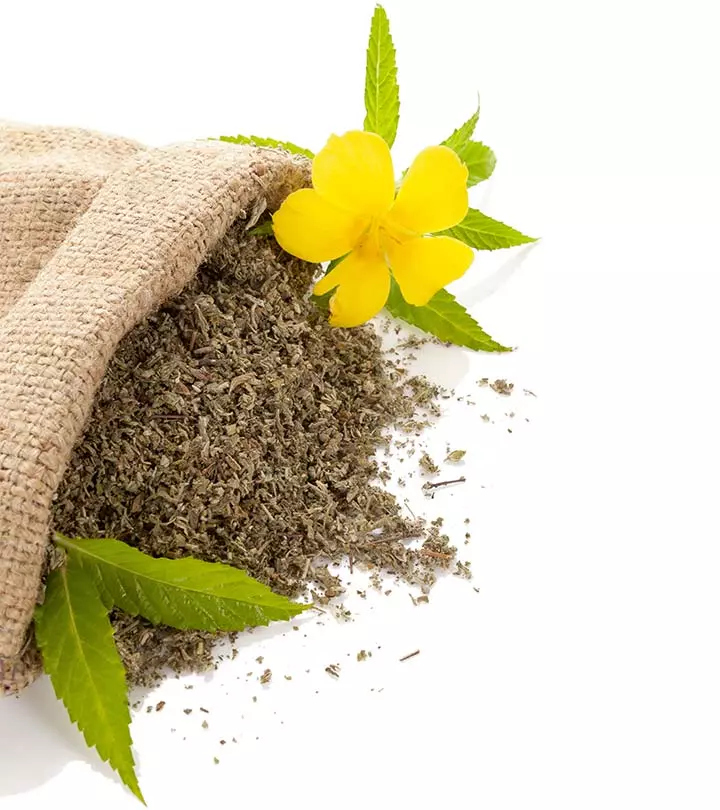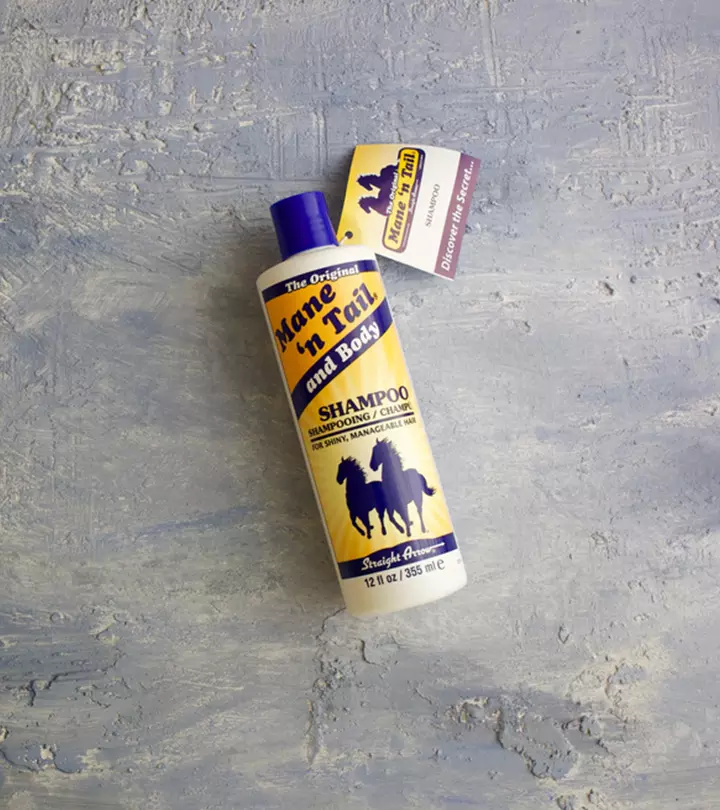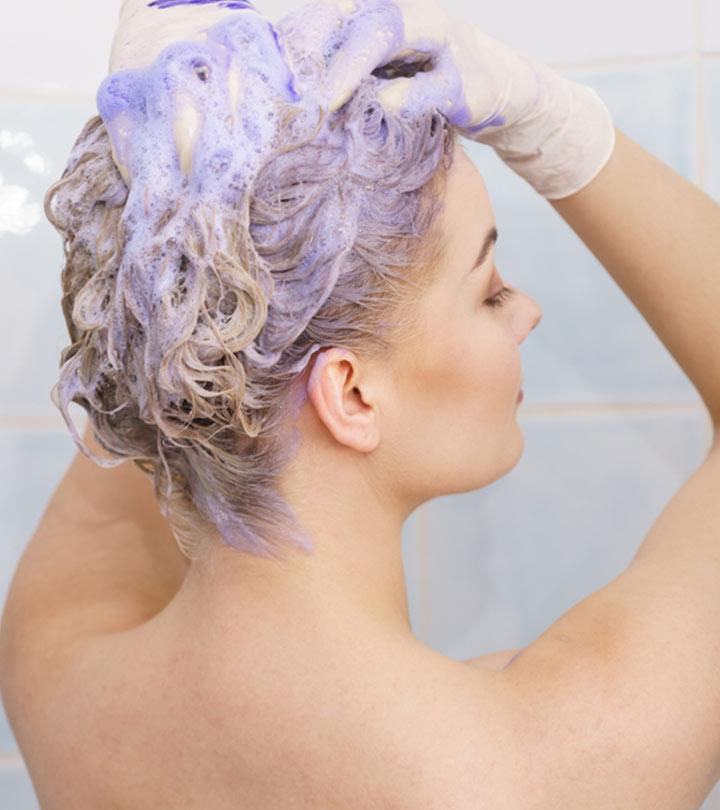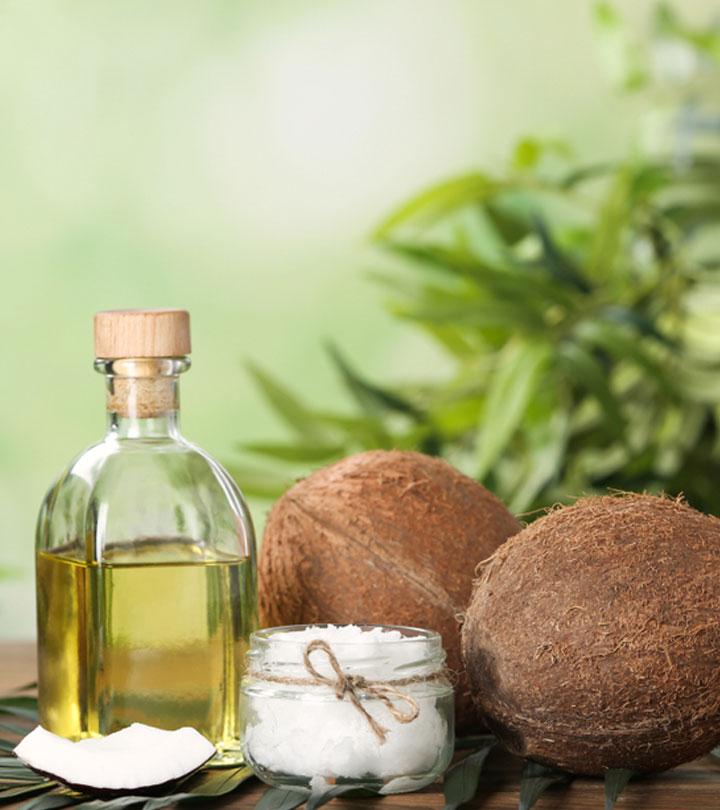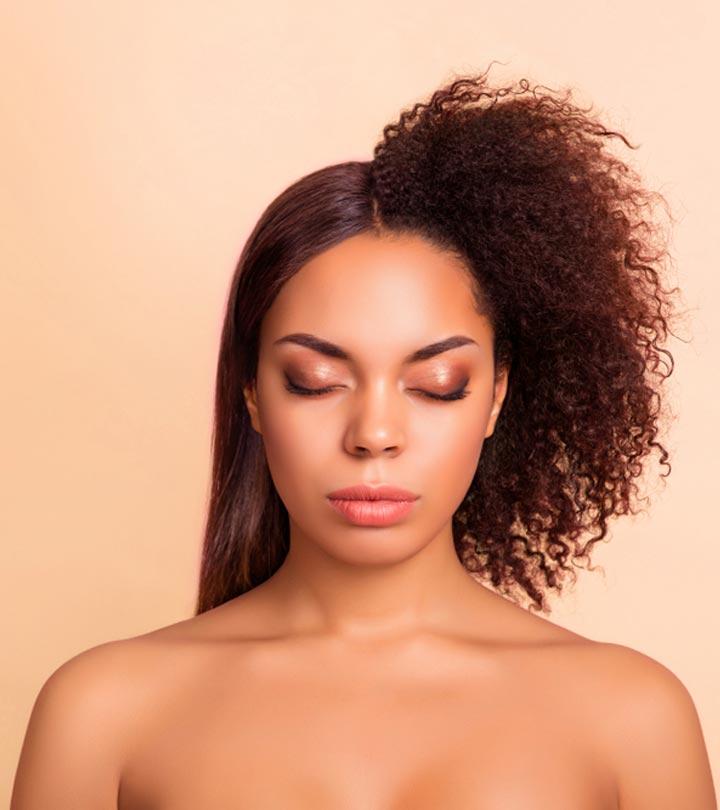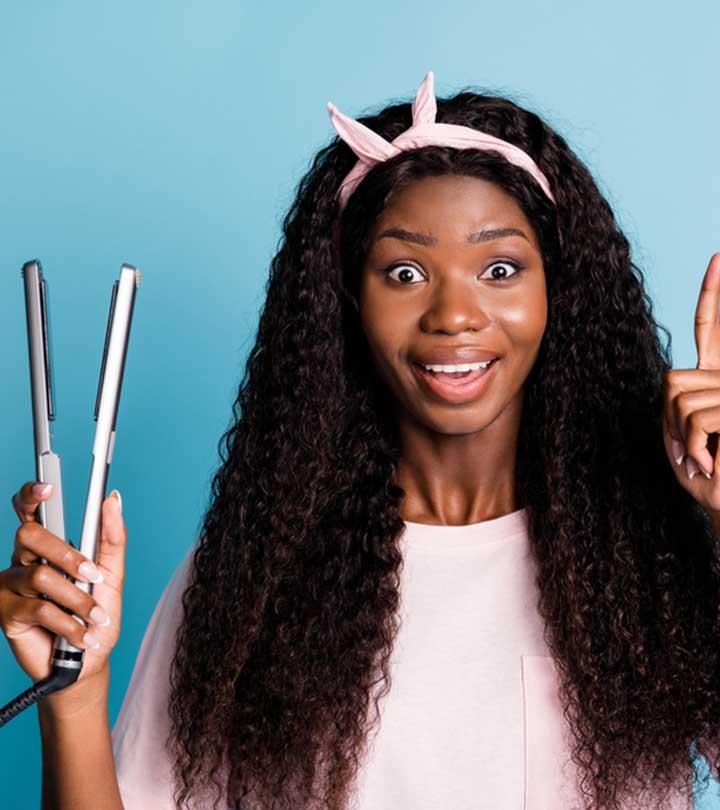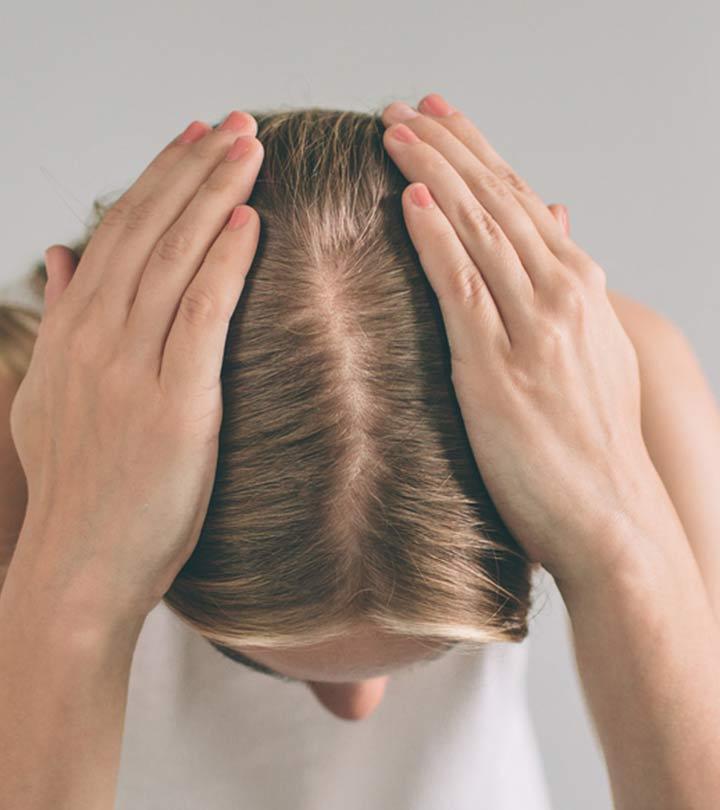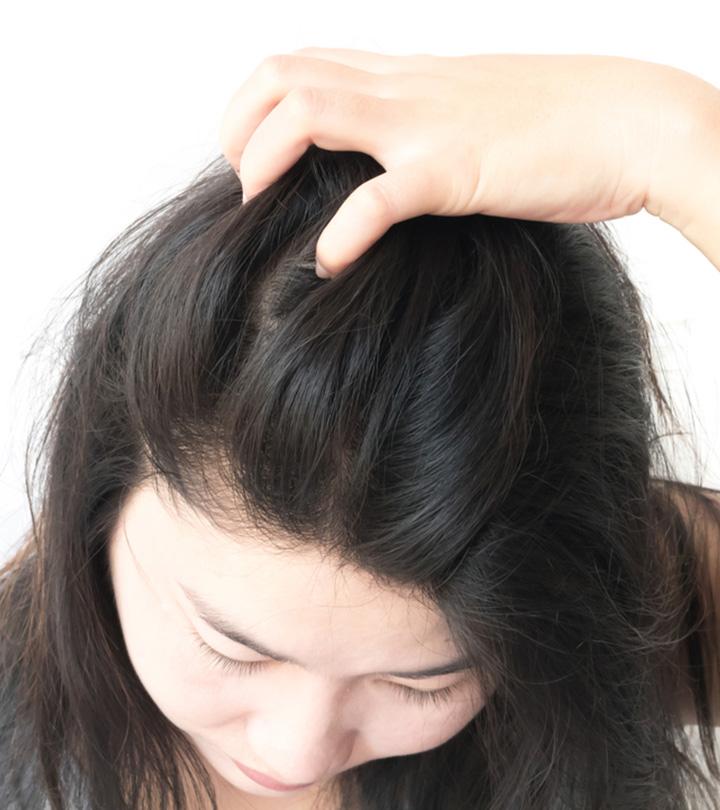How To Use Ashwagandha For Hair: Benefits And Side Effects
Simple ways to include this medicinal plant in your hair care routine to reap its benefits
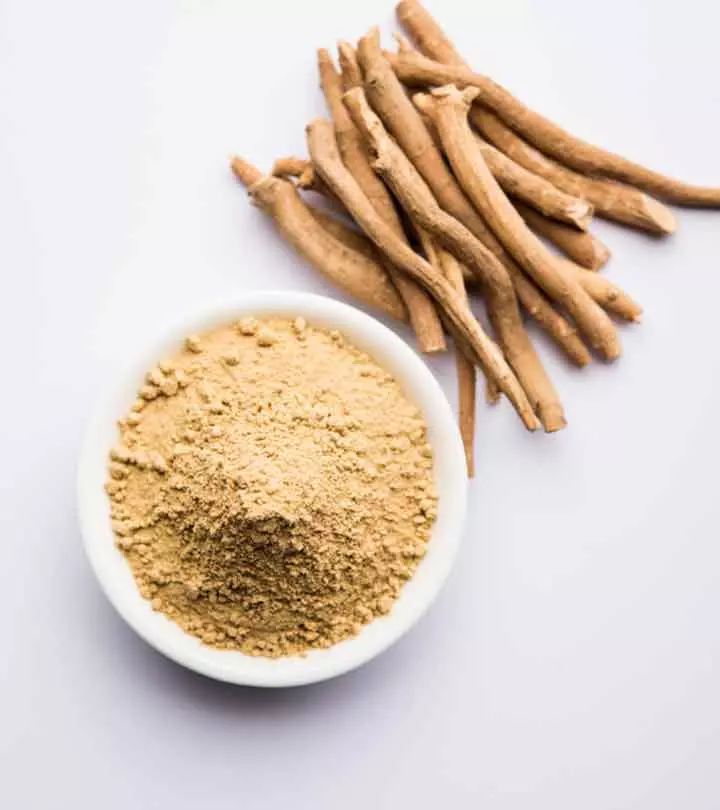
Image: ShutterStock
Recent years have seen more people turn towards natural, alternative hair care methods instead of chemical products. Proponents of Ayurvedic practices swear by the benefits of ashwagandha for hair. This herb is often used in hair care products. It boosts hair health and growth and is a rich source of antioxidants, and anti-inflammatory compounds, which may help deal with scalp problems. This article discusses the benefits of ashwagandha for hair and how to use it for your hair. Read on.
 Know Your Ingredient: Ashwagandha
Know Your Ingredient: AshwagandhaWhat Is It?
A small evergreen shrub whose plant parts have been traditionally used in Ayurved and Chinese medicine.
What Are Its Benefits?
Ashwagandha manages stress and anxiety and reduces stress-related hair fall, as well as repairs damaged hair.
Who Can Consume It?
Ashwagandha is safe for most adults, but people with gastric irritation and liver issues should avoid its consumption.
How Often?
Ashwagandha can be consumed daily in little amounts.
Caution
Individuals with auto-immune diseases should avoid ashwagandha to prevent over simulation of the immune system.
In This Article
What Is Ashwagandha?
Ashwagandha, also called Withania somnifera, is a small evergreen shrub that grows in India, the Middle East, and parts of Africa. The fruits, leaves, and roots of the plant are traditionally used as natural remedies in Ayurveda, Siddha, Unani, and Chinese medicine (1)
Ashwagandha has gained popularity in the past century for boosting hair health. Preliminary scientific studies on the plant’s efficacy in treating hair issues show promising results (2).
Read on to learn more about the history of ashwagandha for hair.
 Quick Tip
Quick TipHistory Of Ashwagandha
Ashwagandha, the ancient medicinal herb, has a rich history of promoting hair health. Its use originated in India. Its usage in Ayurvedic medicine can be traced back to 6000 BC to address various health concerns, including hair loss and scalp issues. It is also known as Indian ginseng and is widely available in powder form (churna) (1). Traditionally, it was consumed as a tonic or applied topically in oil form to nourish the scalp and strengthen hair follicles. Today, it remains a popular natural remedy for those seeking to improve the condition and vitality of their hair. Its versatility in addressing hair-related issues makes it a valuable addition to modern beauty routines, with many embracing its holistic approach to hair care. Let’s explore how Ashwagandha can contribute to promoting hair health.
How Can Ashwagandha Help In Promoting Hair Health?
Ashwagandha’s potent adaptogenici Relating to the property of adaptogens, plants and mushrooms that can reduce fatigue, stress, anxiety, and improve your overall well being. , anti-inflammatory, and anti-stress properties may help promote hair growth. Keep reading to know more.
1. May Help Treat Stress-Related Hair Loss
Increased levels of stress hormones in your system can lead to hair loss. Ashwagandha has natural mood-boosting properties that help manage stress and anxiety (1). It may effectively reduce stress-induced hair loss.
2. May Strengthen Hair
Ashwagandha, also known as Indian ginseng, is a rich source of antioxidants and protects against cellular damage caused by free radicals (1). Antioxidants are known to preserve the shine of hair fibers and even protect them from UV radiation (2).
3. May Nourish Your Scalp
Ashwagandha extracts possess antibacterial and anti-inflammatory properties that soothe an irritated and itchy scalp (1). Topically applying the herb can boost scalp blood circulation and promote the delivery of vital nutrients to your hair follicles. Consistent use of ashwagandha may help treat dandruff, psoriasis, incessant scalp itch, eczema, and other conditions caused by inflammation. However, more research is warranted in this regard.
4. May Repair Damaged Hair
Ashwagandha stimulates DHEA (Dehydroepiandrosterone) production, which boosts the production of collagen and sebum on your scalp (3). Collagen may help repair dry and damaged hair. However, more research is warranted in this regard.
5. May Reverse Premature Hair Graying
Anecdotal evidence suggests that ashwagandha may stimulate melanin production. It contains tyrosine, an amino acid that helps in melanin production. It is the pigment that gives hair a dark color, and the restoration of lost melanin may reverse premature hair graying (4).
More research is warranted to further understand these benefits of ashwagandha. But you may still use it as it is generally considered safe. We discuss its ways of use in the next section.
How To Use Ashwagandha For Hair
Ashwagandha products can be applied topically in the form of hair masks, oils, and shampoos. The extracts of the plant are also available as capsules or powders that are meant for oral consumption.
Here are a few ways you can use ashwagandha for hair.
1. Enriched Ayurvedic Hair Care Products
You can use ayurvedic hair care products such as hair oils, shampoos, and conditioners that have been enriched with ashwagandha extracts. You can also add some ashwagandha powder to your regular shampoo or conditioner and use.
2. Hair Masks
The best way to use ashwagandha for hair regrowth is to apply the powder as a nourishing hair mask. We go over some recipes below to get you started:
For Normal To Oily Hair
You Will Need
- 2 to 3 teaspoons of ashwagandha powder
- Half a cup of warm water
Instructions
- Add ashwagandha powder to half a cup of warm water and mix well.
- Apply this paste to your scalp and massage with your fingertips in circular motions.
- Leave it on for 30 minutes.
- Wash with normal water and your regular shampoo.
For Dry Hair
You Will Need
- 2 to 3 teaspoons of ashwagandha powder
- 1 to 2 teaspoons of hibiscus powder
- Half a cup of coconut milk
Instructions
- Mix the ashwagandha and hibiscus powders with the coconut milk and make a smooth paste.
- Apply the ashwagandha paste to your scalp and hair.
- Leave it on for half an hour.
- Wash with normal water and a herbal shampoo.
3. Oral Supplements
Ashwagandha extract is readily available in the form of herbal supplements like capsules and gummies. You can take an oral supplement with your breakfast or lunch to incorporate the herb into your regular diet. However, consult your doctor before taking any supplements.
4. Make A Tea
Another way to consume ashwagandha for hair loss is to add a teaspoon of the powder or a small piece of the root to one cup of water and bring it to a boil. You may add a few drops of lemon juice to enhance the tea’s taste and smell.
5. Have It With Water
Stir 1 to 2 teaspoons of ashwagandha powder into a glass of plain water and have it in the morning. This method is very effective (though not as popular due to the powder’s strong herbal scent). You may add the powder to your green juices or smoothies to mask its distinct flavor.
Evelyn, a vlogger, shared her amazing experience with ashwagandha for hair loss. She said that she had been taking ashwagandha for the past 3 months, twice a day. She would add a teaspoonful of it to hot water and drink it. She added, “I started taking ashwagandha specifically to target hair loss and to help control my stress levels. My hair is no longer thin (i).” She advised the viewers to use it only after doing proper research.
Before you start using ashwagandha, it is important to be aware of its side effects, if any.
 Quick Tip
Quick TipDoes Ashwagandha Have Any Side Effects?
Ashwagandha is generally considered safe for most people. However, heavy doses of the herb, when taken by mouth, might cause diarrhea, stomach upset, and vomiting. Those who suffer from severe gastric irritation or ulcers and liver issues should avoid ashwagandha (5). Limited research is available on the safety of the herb for pregnant and breastfeeding mothers. Stay safe and avoid use.
Ashwagandha may also make the immune system more active (6). As per anecdotal evidence, people with auto-immune diseases like multiple sclerosisi A chronic disease that occurs when the immune system attacks the protective covering of nerves, causing fatigue and loss of balance. (MS), lupusi An inflammatory disease that affects the joints, brain, lungs, and skin due to the attack of the immune system on its own tissues. (systemic lupus erythematosus, SLE), rheumatoid arthritis (RA), or other conditions should not use it. The herb might aggravate such health issues. Those with thyroid diseases should not take ashwagandha without the advice of their doctors. Consult your health care provider for more information.
Infographic: All You Need To About Using Ashwagandha For Hair Care
Ashwagandha has been used in traditional medicine for many years. However, it has grown more popular in recent years due to its many hair care benefits. Check out the infographic below for a quick recap of the benefits of this nourishing herb and how to make the most of it to achieve healthy, luscious hair.

Illustration: StyleCraze Design Team
Ashwagandha has been used for ages due to its several medicinal properties. It aids in promoting overall health and treats several hair care issues. Using ashwagandha for hair is one of the oldest methods to nourish your locks. However, there are not enough scientific studies to support these claims.
According to anecdotal evidence, ashwagandha can offer healthy and shiny hair if used regularly. It provides stress relief and may reduce stress-induced hair loss. The herb has the potential to boost circulation and aids scalp health. Though natural, you must be aware of its side effects too. Always do a patch test if using it for the first time.
Frequently Asked Questions
Does ashwagandha increase estrogen in females?
Yes, regular intake of ashwagandha increases estrogen levels in females.
Does Ashwagandha work immediately?
No, ashwagandha will not work immediately after intake. It takes at least a couple of weeks to show reasonable results.
What is the most effective way to use ashwagandha for hair loss?
The most effective way to use ashwagandha for hair loss is to take it orally as a supplement. Ashwagandha supplements are available in the form of capsules, gummies and powders. The recommended dosage may vary based on the supplement and the severity of your hair loss. Consult a healthcare professional for the right dosage before taking ashwagandha supplements to ensure safety.
What hair types can benefit most from using Ashwagandha?
Ashwagandha can benefit all hair types. It is especially useful for hair issues like dry, damaged, and brittle hair. It is also effective for those struggling with thinning hair or hair loss.
Key Takeaways
- Ashwagandha is a plant native to India, the Middle East, and certain parts of Africa.
- It has been used in traditional Ayurvedic and Chinese medicine for centuries.
- Ashwagandha is popular for its anti-inflammatory properties that help reduce stress, promote hair growth, and protect the scalp against infections.
- You can apply ashwagandha with coconut milk as a hair mask or consume it in the form of oral supplements.
- Heavy doses of ashwagandha may result in certain side effects such as nausea, vomiting, and upset stomach.
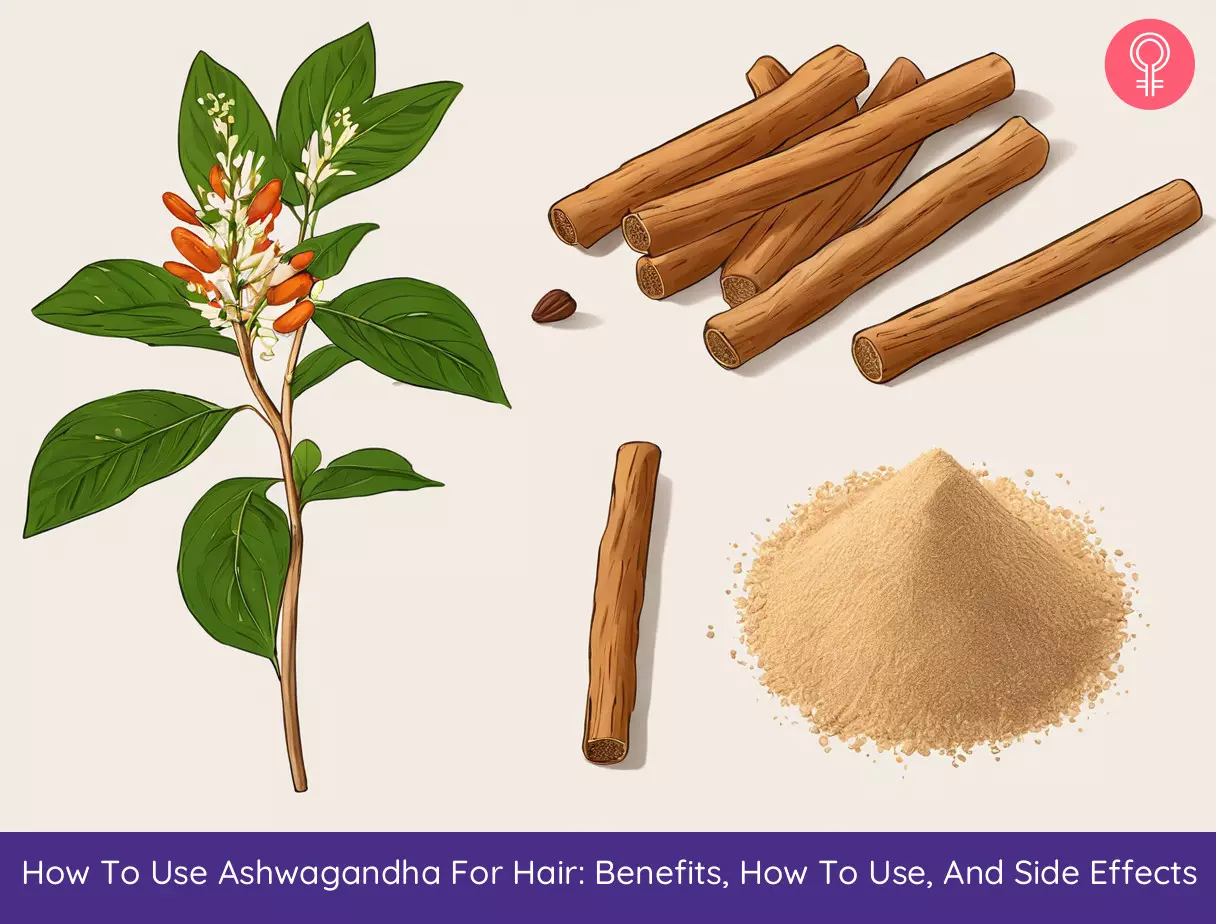
Image: Stable Diffusion/StyleCraze Design Team
Uncover the incredible potential of ashwagandha for hair care in this captivating video. Dive into the world of natural remedies and explore how this herb can revitalize and nourish your hair.
Personal Experience: Source
StyleCraze's articles are interwoven with authentic personal narratives that provide depth and resonance to our content. Below are the sources of the personal accounts referenced in this article.
i. Ashwagandha the miracle herb for hair loss & health benefits,https://www.youtube.com/watch?v=iqr8rQvxBOs
References
Articles on StyleCraze are backed by verified information from peer-reviewed and academic research papers, reputed organizations, research institutions, and medical associations to ensure accuracy and relevance. Read our editorial policy to learn more.
- An Overview on Ashwagandha: A Rasayana (Rejuvenator) of Ayurveda
https://www.ncbi.nlm.nih.gov/pmc/articles/PMC3252722/ - Efficacy of antioxidants in human hair
https://pubmed.ncbi.nlm.nih.gov/23123594/ - Ashwagandha root in the treatment of non-classical adrenal hyperplasia
https://www.ncbi.nlm.nih.gov/pmc/articles/PMC4543599/ - Premature Graying of Hair: Review with Updates
https://www.ncbi.nlm.nih.gov/pmc/articles/PMC6290285/ - Ashwagandha
https://www.ncbi.nlm.nih.gov/books/NBK548536/ - Immune System and Inflammation
https://www.ncbi.nlm.nih.gov/pmc/articles/PMC3086159/ - An Overview on Ashwagandha: A Rasayana (Rejuvenator) of Ayurveda
https://www.ncbi.nlm.nih.gov/pmc/articles/PMC3252722/ - Efficacy of antioxidants in human hair
https://pubmed.ncbi.nlm.nih.gov/23123594/ - Ashwagandha root in the treatment of non-classical adrenal hyperplasia
https://www.ncbi.nlm.nih.gov/pmc/articles/PMC4543599/ - Premature Graying of Hair: Review with Updates
https://www.ncbi.nlm.nih.gov/pmc/articles/PMC6290285/ - Ashwagandha
https://www.ncbi.nlm.nih.gov/books/NBK548536/ - Immune System and Inflammation
https://www.ncbi.nlm.nih.gov/pmc/articles/PMC3086159/
Read full bio of Dr. Rekha Yadav
Read full bio of Ramona Sinha
Read full bio of Medha Deb






